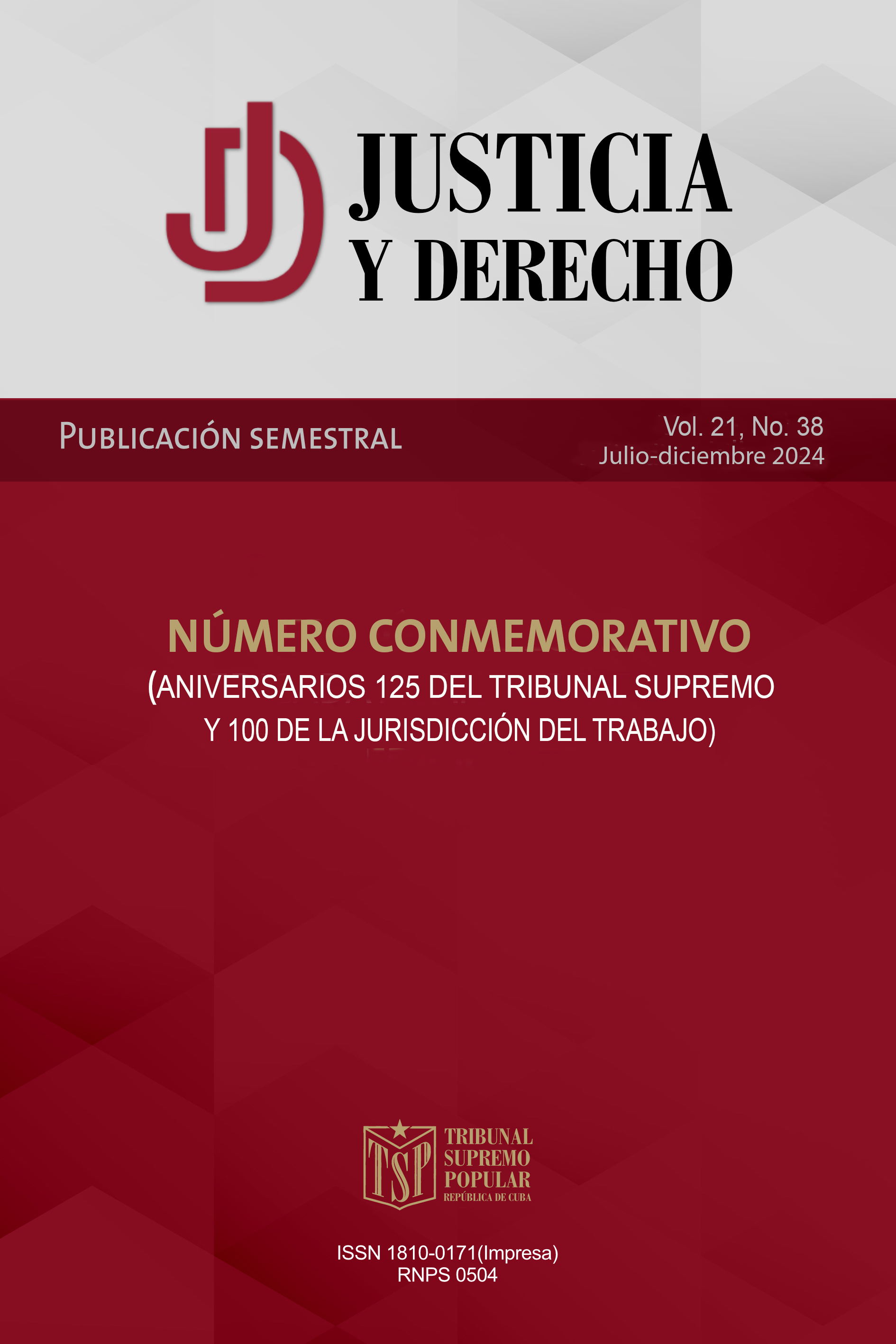Labour law in the 21st century: Different?
Main Article Content
Abstract
Based on a brief characterization of the scenario that led to the emergence of labour law, as an autonomous branch of law, and its current configuration, proposals are made for legal foundations to adapt it to the various work scenarios and to ensure that the discipline can continue to fulfil the protective purpose that inspires it, with special reference to the significance of the guarantee of access to justice that must accompany all forms of work.
Downloads
Article Details

This work is licensed under a Creative Commons Attribution-NonCommercial 4.0 International License.
References
Buen Lozano, N. de. (1997). Instituciones de Derecho del trabajo y de la seguridad social. AIDTSS-UNAM.
Carrizosa Prieto, E. y Jalil Naji, M. (2023). Trabajo atípico, desempleo y (des)protección social, Revista Internacional de la Protección Social [online], 36-70. https://doi.org/10.12795/e-RIPS.2023.mon.04
Cavazos Flores, B. (2004). 40 lecciones de Derecho laboral (9.a ed., 4.a reimp.). Trillas.
Constitución de la República. (Abril 10, 2019). GOR-E, (5), 69-116.
Ermida Uriarte, O. (2000). Globalización y relaciones laborales. Revista de Derecho, (7), 137-151. https://revistaderecho.ucn.cl/index.php/revista-derecho/articleview/2207
Grisolia, J. A. (1999). Derecho del trabajo y de la seguridad social. De Palma.
Ley No. 116, «Código de trabajo». (Junio 17, 2014). GOR-E, (29), 453-483.
Organización de Naciones Unidas. (1990). Principios básicos sobre la función de los abogados. www.ohchr.org
Organización Internacional del Trabajo. (2016). El empleo atípico en el mundo: Retos y perspectivas (presentación resumida del informe). www.ilo.org
Organización Internacional del Trabajo. (2024). Recomendación 204 de 2015, sobre la transición de la economía informal a la economía formal. En Convenios y Recomendaciones actualizados. http://normlex.ilo.org
Raso-Delgué, J. (2009). La contratación atípica del trabajo (2.a ed. ampliada y actualizada). Editorial y Librería Jurídica Amalio M. Fernández.
Raso-Delgué, J. (Marzo, 2017). La formulación (o reformulación) del Derecho del trabajo ante los cambios del siglo XXI [ponencia, XI Encuentro Internacional de Abogados Laboralistas y del Movimiento Sindical, repositorio de la Unión Nacional de Juristas de Cuba].
Villasmil Prieto, H. (Julio-diciembre, 2015). Pasado y presente del Derecho laboral latinoamericano y las vicisitudes de la relación de trabajo. Revista Latinoamericana de Derecho Social, 21(2), 203-228. https://doi.org/10.1016/j.rlds.2015.07.008
